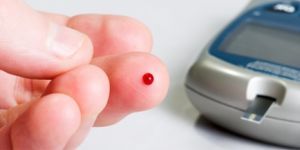Article
Pre-diabetes Diagnosis Costly, Unnecessary
Author(s):
The term pre-diabetes has limited clinical value as a majority of patients who fall into the category do not go on to develop type 2 diabetes, according to researchers.

The term pre-diabetes has limited clinical value as a majority of patients who fall into the category do not go on to develop type 2 diabetes, researchers at the University College London (UCL) and the Mayo Clinic in Minnesota claimed.
Commonly, a type 2 diabetes diagnosis is given when a patient has A1c hemoglobin levels of 6.5%. However, the American Diabetes Association (ADA) designates a pre-diabetes label to individuals with an A1c between 5.7% and 6.4%.
Additionally, the World Health Organization (WHO) weighed in on the topic and discourages the use of the term “pre-diabetes” since it is associated with stigma of diabetes, but many people do not actually progress to diabetes. The WHO doesn’t go as far as the ADA in considering pre-diabetes as its own separate diagnosis.
In their study, which appeared in BMJ, the investigators accessed the harm, costs, and medical goals associated with a pre-diabetes diagnosis.
“Pre-diabetes is an artificial category with virtually zero clinical relevance,” John S Yudkin, Emeritus Professor of Medicine at UCL and the study’s lead author, said in a statement. “There is no proven benefit of giving diabetes treatment drugs to people in this category before they develop diabetes, particularly since many of them would not go on to develop diabetes anyway.
The investigators reported the diagnosis is problematic for self-image, employment, insurance, and medications with their associated side effects. Furthermore, UCL pointed out that the ADA’s definition would mean that 12 million individuals would be diagnosed with pre-diabetes. The researchers also found limited evidence that current preventative treatments administered to pre-diabetes patients is effective.
“Diabetes prevention requires changes to societies and therefore a concerted global public health approach,” the researchers wrote. “Diagnoses and thresholds for clinical application may unrealistically burden societies in exchange for limited value.”




